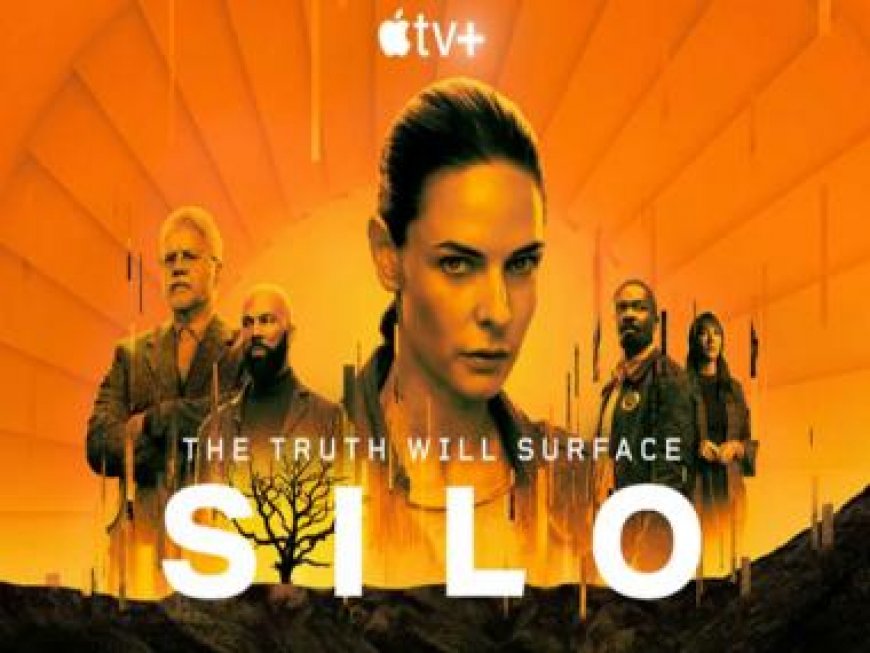Why Silo is the best science fiction show of the year
Why Silo is the best science fiction show of the year

I was in my early 20s when I read Stephen King’s novel Under The Dome (2009), a masterful doorstopper (it was over a thousand pages) that blended eco-criticism with a smartly drawn allegory involving the author’s opposition to the Iraq war. I had read plenty of Asimov by that point, so I understood (kind of) how writers of speculative fiction presented their political concerns at the heart of a plot-heavy book. But this was my first time witnessing a heavyweight author responding directly to a relatively recent political event. In Under The Dome, the residents of a small town in Maine find themselves being transformed, overnight, into a ‘domed city’ — inexplicably, a glass-like dome barrier has descended from the heavens and right over their town. King’s novel was on my mind recently as I watched the first season of Silo, Apple’s latest sci-fi series, because the premises of both shows are broadly similar. For a number of reasons, I feel like Silo is the best science fiction show of the year.
The narrative follows the 10,000 residents of agigantic underground structure, built hundreds of feet beneath ground level — the ‘silo’ of the title. The people in charge of the silo have strictly forbidden residents from going to the surface, and they’ve been told that doing so will result in near-instant death from the toxic atmosphere of a post-nuclear landscape. And yet, as a group of enterprising residents led by Juliette Nichols (Rebecca Ferguson) increasingly suspect, the IT department (led by Bernard Holland, played by a suitably sinister Tim Robbins) has been hiding records of the past from them. They aren’t above manipulating images in the present either.
Could it be that the destruction of the records, the strict regulations and the air of secrecy around the supposedly apocalyptic incident are all in the service of a covert autocracy? That is the narrative hook dangled by Silo.
As the above outline suggests, a lot of the symbolic power of Silo revolves around the specter of Covid-19 — both the actual devastation left by the virus as well as the strict regulations it forced governments around the world to adopt. The opening scene of the show, in fact, is telling in this regard. Holston Becker (David Oyelowo), the designated Sheriff of the silo, is in office in the morning as usual. Only today, he approaches his deputy and in an emotional moment, tearfully asks to be let outside. “I want to go out”, he says as his tear-streaked face tells the audience that there’s an entire history of emotional upheaval here, centred around the fatal temptation of stepping outside the silo.
A succession of characters keeps following Juliette’s lead in trying to figure out he truth of the silo—this despite the fact that these helping hands tend to meet mysterious death just as quickly. But even as this keeps happening, you also understand why death isn’t a deterrent—years of being cooped up have given all these characters a seriously unhinged view of the risk/reward equation here. This, and the fact that almost nobody trusts the word of the silo’s government, especially Bernard and the IT department.
Tim Robbins’ portrayal of Bernard goes a long way in selling that terror, that overwhelming feeling of cabin fever. During a promotional interview for Silo with Variety, Robbins claimed that his performance as Bernard was based on what he saw as the authoritarianism of pro-lockdown politicians. He went on to say that harsh lockdowns were tantamount to “an assault on free speech”.
Robbins said: “I’ve always been curious about what goes on in leaders’ heads when they have to do something that is morally compromising for what they consider the greater good. I always look at that as a terrible no-win situation. And I often wonder if those measures that they take, that are immoral, are necessary. I think we’ve been through three and a half years of extraordinary and questionable choices made by people that are supposed to be leading their countries.”
When you see Silo in that light, it’s not difficult to see the show’s appeal at a time when the wounds of 2020-21 are still fresh. The show cleverly morphs from sci-fi caper to police procedural (who’s killing Juliette’s friends and why?) to eco-allegory deftly, as the season progresses. It has helped that this is not a binge-watch show—Apple’s decision to release episodes weekly suits the story’s pacing and keeps the audience latched onto the whodunit subplot. Friday evening (June 29) will see Silo wrapping up its first season and there’s no reason why it shouldn’t execute the landing perfectly.
Aditya Mani Jha is a Delhi-based independent writer and journalist, currently working on a book of essays on Indian comics and graphic novels.)
Read all the Latest News, Trending News, Cricket News, Bollywood News, India News and Entertainment News here. Follow us on Facebook, Twitter and Instagram.
What's Your Reaction?



























































